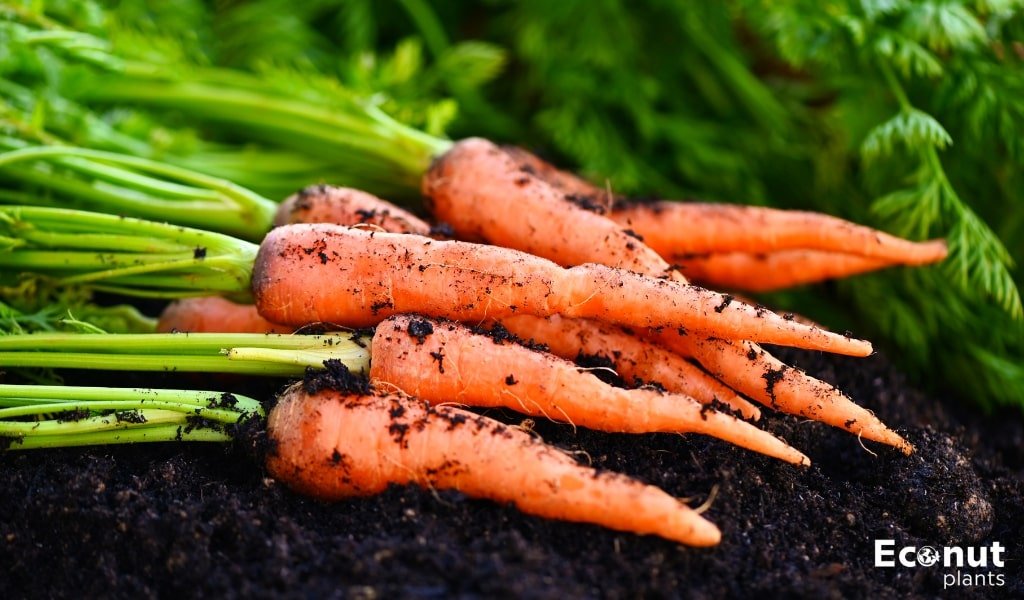Carrots (Daucus carota) are a favourite vegetable crop among home gardeners because of their abundant supply from early spring to autumn, ease of development, and ability to thrive in both garden beds and containers.
Are you thinking of planting some companion plants this season, but you’re not sure what to put where? Carrots can be successfully combined with many other plants, while some combinations are more successful than others. Some of our favourite organic companion plants to grow with carrots this season are included in this post!
1. Marigolds
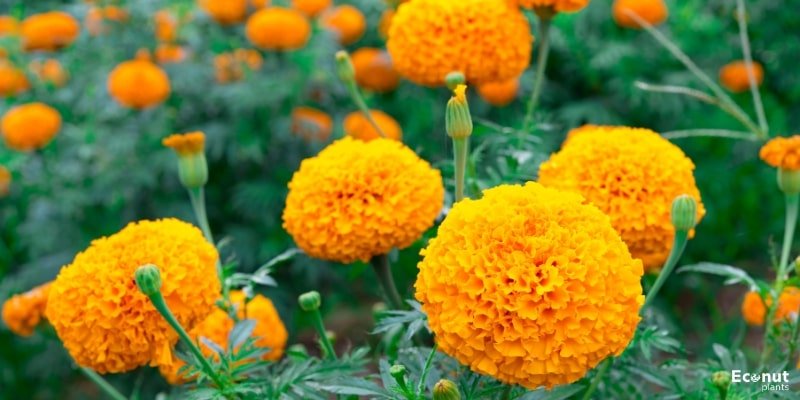
Marigolds will work wonders for carrots if you want them sweeter and tastier. Carrots with a higher sugar and carotene content are planted together. Furthermore, marigolds deter carrot psyllids and carrot rust flies.
2. Cilantro
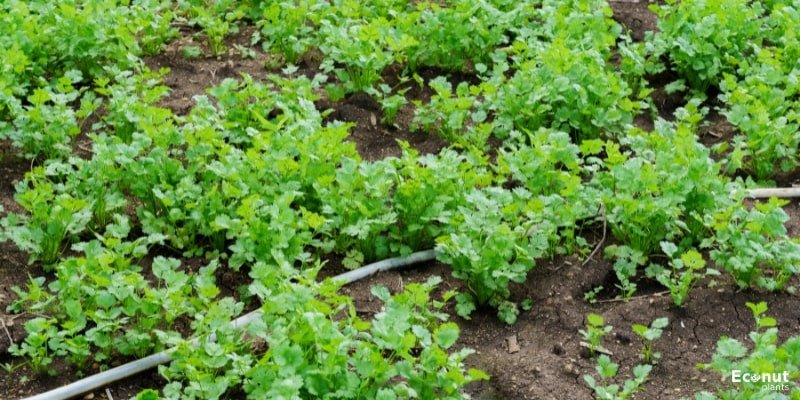
Carrots and other members of the parsley family shouldn’t often be grown together, but cilantro is an exception. In terms of height, size, days to maturity, and seasonality, this herb grows best in cool climates and complements cilantro.
Aphids, nematodes, lygus bugs, carrot whiteflies, and rust flies are all drawn to the blossoms of this plant. Consequently, cilantro functions as a natural biocontrol oasis, naturally preventing pests.
3. Leeks
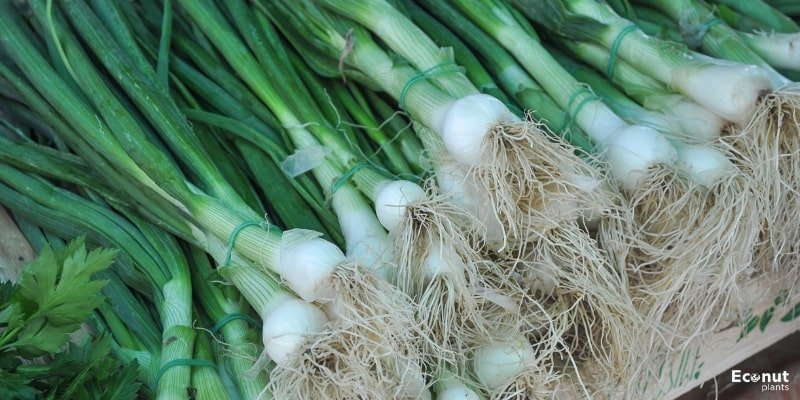
Carrots and leeks are excellent companion plants because the former ward off carrot flies and the latter off leek moths. When leeks and carrots are planted together, pests will not harm either plant as they grow.
4. Lettuce

Carrots allow the thin roots of lettuce to grow deeper in the soil, which makes them the ideal partners for a garden suited for salads. In addition to attracting ladybugs and lacewings, carrots also attract aphids that prey on lettuce.
5. Oregano

Another wonderful herb to pair with carrots is oregano. This fragrant herb deters pests in the garden naturally, in addition to adding flavour to food preparations. Its potent aroma aids in keeping pests like spider mites and aphids away, safeguarding the nearby carrot plants.
Furthermore, oregano draws pollinators like butterflies and bees, which increases the garden’s general biodiversity. Carrots gain from the proximity of oregano plants, which also yield a tasty herb for cooking.
6. Brassicas
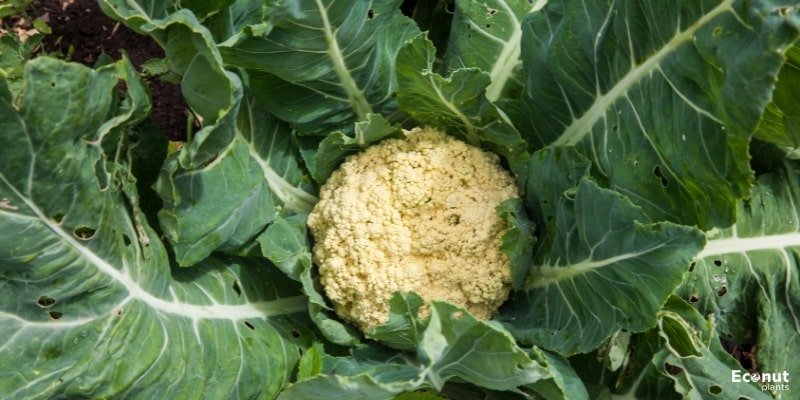
Brassicas, a general term for dark green leafy vegetables like kale, broccoli, and cabbage, are great planted next to carrots because their big leaves serve as a good disguise. Additionally, the carrots benefit brassicas by possibly keeping cabbage root flies from laying their eggs nearby.
7. Thyme
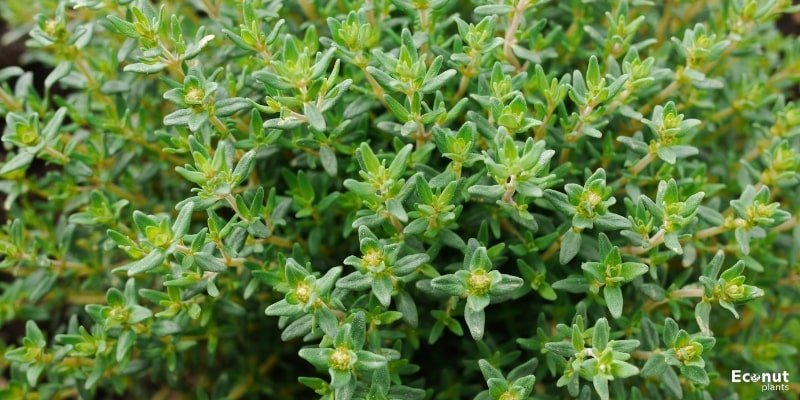
It’s true that growing leeks, onions, parsley, or mint next to your carrots will help keep those annoying carrot flies away. The smell of your carrots may be muffled by these potent plants and herbs, making it more difficult for carrot root flies to locate them.
8. Bush Beans
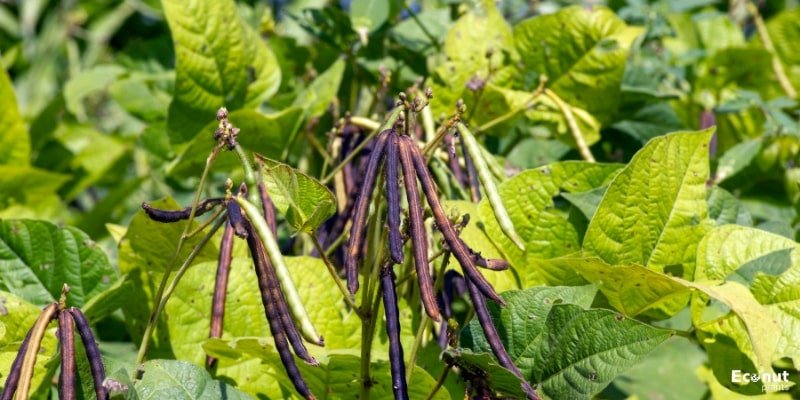
While beans offer a delicate, slow-release kind of organic nutrients from nitrogen-fixing bacteria in their roots, carrots dislike large flushes of nitrogen fertilizer because it can crack them. They are also non-competitive, peaceful neighbours.
9. Peppers
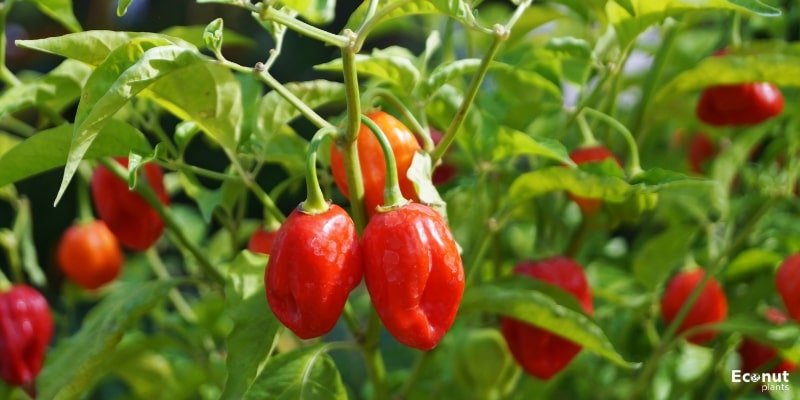
Leafy bell peppers provide the shade that carrots need to withstand the summer heat. Carrots aid in loosing the soil so that pepper roots may take root, so the relationship is mutually beneficial.
10. Tomatoes

Carrots are the first plants to let tomatoes grow because their deep roots break up the soil as they go below the surface. In doing so, the soil becomes more permeable to water and nutrients, which promotes the growth and deepening of tomato roots.
11. Borage
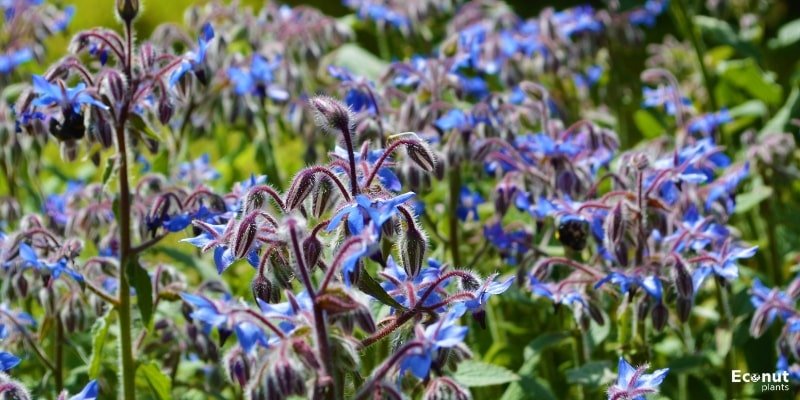
Carrots pair well with borage, which is renowned for its capacity to draw pollinators and ward off pests. In addition to adding visual appeal to the yard, the stunning blue blossoms of borage also draw butterflies, bees, and other helpful creatures. The presence of these pollinators aids in the successful pollination and fruit set of neighbouring carrot plants.
In addition, borage produces chemicals in the soil that deter pests like cabbage worms and hornworms, shielding the carrot crop from possible harm. Alongside carrots, borage adds biodiversity and improves the general health of the garden.
12. Cabbage

While they grow in quite distinct ways, cabbage and carrots make excellent partners despite their shared inclination for colder weather. Carrots’ deep roots and cabbage’s shallow roots complement each other well and don’t draw pests from the same places.
13. Rosemary

Carrot rust flies are greatly deterred by strong aromas, so if you have a rosemary shrub growing next to your carrots, they are unlikely to come visit. It serves as a fragrance mask and a deterrent for these bothersome insects.
14. Sage

With its potent aroma and natural oils, sage works well to repel pests like the carrot rust fly. These pests may find it challenging to find their host plants—carrots in this case—due to the sage scent’s ability to confound them.
Sage not only keeps these damaging insects away from your carrots, but some gardeners think it also makes the carrots taste even better.
Sage can also work wonders at discouraging larger foragers like deer. These animals may be put off by its strong scent, which will keep them away from your priceless produce. Sage is a fragrant barrier that keeps deer and other wildlife away from your garden when used as a border plant or planted in pots between your rows.
15. Daffodils
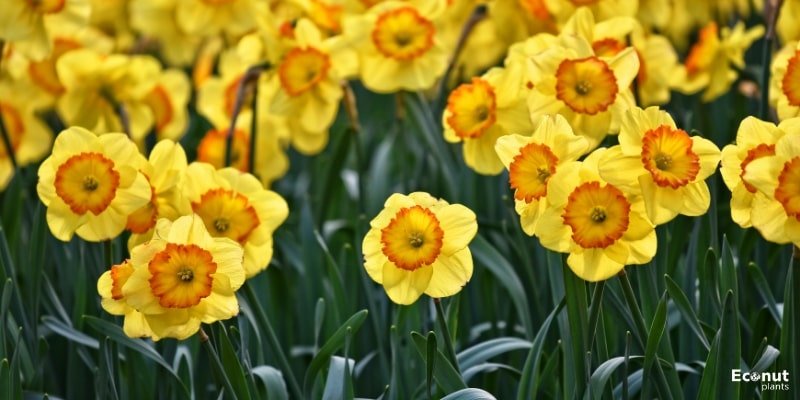
Even though daffodils might seem like an odd match for an annual vegetable, bear with me for a moment: An old farmer’s trick for keeping mice at bay is daffodils. In fact, squirrels, voles, mice, and even deer are poisoned by these bulbous blossoms.
The bitter taste and odour of the flower bulbs disgust them. Planting daffodils along the perimeter of a raised bed or greenhouse will help keep mice from burrowing in around your carrot plants.
16. Radish
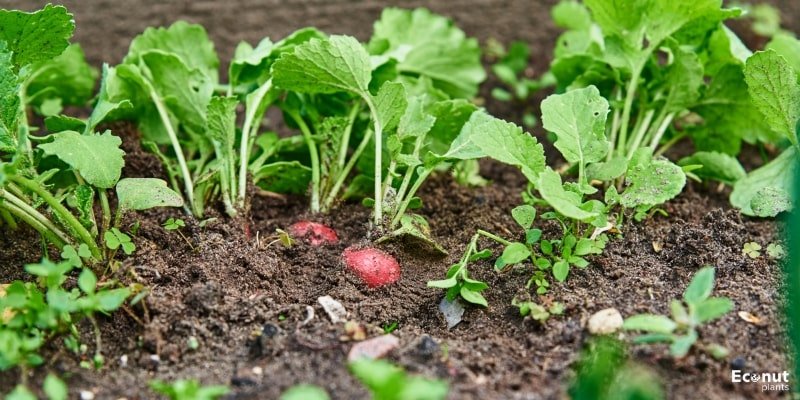
Out of all the crops, radishes are the ones that loosen the soil for carrots rather than the other way around because of their rapid growth rate. For the entire summer, these two root crops make great companion plants.
17. Cucumber

In the garden, cucumbers take up a lot of space but also leave a lot of room, especially when their vines grow upward. When combined with slow-growing carrots, they help cover the ground and keep weeds from taking over.
18. Onion

Carrot flies are the primary pest of these highly sought-after roots, and onions have the wonderful property of keeping these bothersome flies away from your vegetable garden. Onions’ ability to repel pests is attributed to their strong, sulphurous odour. Its bulbous, shallow roots also don’t impede the growth of other plants.

